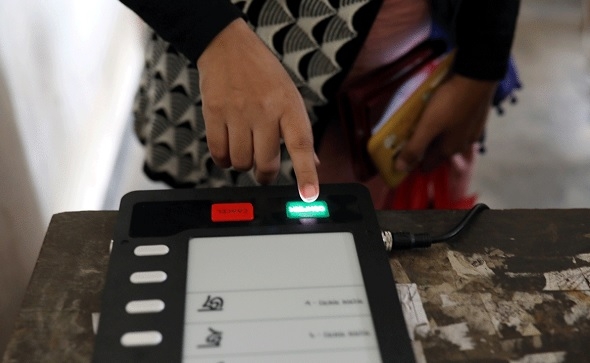General Polls In Bangladesh
| Date :24-Jun-2023 |

By Ashis Biswas :
Any decision to be adopted by the Awami League (AL) would necessarily have great importance for India, its nearest and friendliest neighbour. In practical terms, Delhi would prefer Dhaka to remain neutral as before, much like India, maintaining a balance between the West and non West power blocs.
NO wonder political tensions are rising in Bangladesh, with each passing week. All indications suggest that the proposed general elections in January 2024 would prove to be of epochal significance.
Far more than earlier elections held in Bangladesh, the 2024 poll outcome, observers expect, would mark the way forward for Bangladesh in the decades ahead. So far, Bangladesh has deftly pursued an independent, effectively balanced non aligned foreign policy. Unlike some other Asian countries, Bangladesh has not hesitated in taking independent decisions on sensitive international issues -- the war in Ukraine is a recent example -- without reference to major power blocs.
As the country prepares to organise its next round of elections however, it finds that diplomatic pressure especially from the powerful bloc of US-led Western nations, has increased significantly.
In plain terms, they wish to see Bangladesh express its political preference for the West more openly. By announcing a few sanctions against the Awami League(AL)-ruled Government for its handling of human rights and related issues, the US has already served notice that Bangladesh’s future economic progress could be stalled unless the Dhaka mended its ways.
This would necessitate a course correction (shift?) in its foreign policy on part of Bangladesh. It must vote for West-sponsored resolutions on Ukraine and other matters in international fora, quite apart from allowing pro-western elements at home like the Bangladesh Nationalist party (BNP) more functional space than before. It would also involve less reliance on China as a major aid-giver and EU/US companies playing a bigger role in the country’s economy.
Even if this involves some compromise with leaders and groups that had actually opposed and co-operated with Pakistan during the struggle for freedom in the seventies, the Awami League, so runs the Western argument, must not object! Else, the bloc of EU countries and the US may not necessarily make it easy for a developing country like Bangladesh to make further economic progress by allowing liberal exporting policies for long. Especially the garments sector, the main Bangladeshi export earner, could be targeted. No wonder ruling AL leaders feel they are up against an existential political challenge. A few wrong moves/signals in the months ahead could very well spell the difference between success and failure for them.
Any decision to be adopted by the AL would necessarily have great importance for India, its nearest and friendliest neighbour. In practical terms, Delhi would prefer Dhaka to remain neutral as before, much like India, maintaining a balance between the West and non West power blocs. Significantly, sections of opinion both within and outside the ruling AL that feel that the country may yet boldly maintain its present neutral political approach. But other Bangladeshis currently struggling against rising inflation and costlier food, fuels and fertilisers, may not share their confidence.
However, if Dhaka prefers to get closer to the West because of an AL defeat or otherwise, India would prefer such a shift, instead of Bangladeshis approaching China for emergency economic assistance , in the long term interest of Delhi’s own greater regional security.
The US-led West has been more assertive diplomatically in the pre-poll run up. US diplomats are interfering openly in Bangladesh affairs, meeting mostly Opposition leaders, participating in various formal and informal programmes. This has upset AL rulers and supporters, who have protested.
The West understands the larger regional implications of the Bangladesh polls, in the context of its own failure to corner the Russia-China bloc in the UN Assembly sessions and Russia’s apparently effective defiance of its sanctions.
In contrast, the approach adopted by China and Japan as major aid givers in South Asia has been far more subtle.
True, unlike Japan, China has condemned US diplomatic interferences in and its sanctioning of Bangladesh in recent statements. Beijing has also alleged how the US routinely ignores its own mistreatment of black and other minorities and allows other forms of ethnic discrimination while hectoring Bangladesh.
Japan has been more careful. Its diplomats have never been known to link its substantial aid packages to either internal or external political developments affecting Bangladesh in any way. But there is no doubt that it would prefer Dhaka to adopt a friendlier relationship with the West rather than with China.
Even the AL’s worst enemies have to concede a significant fact: Bangladeshi economy has under the AL, despite its corruption and mismanagement has fared much better even in these trying times, in comparison with others.
That is one major plus point in favour of the ruling AL that the US and its allies cannot in any way ignore! (IPA)